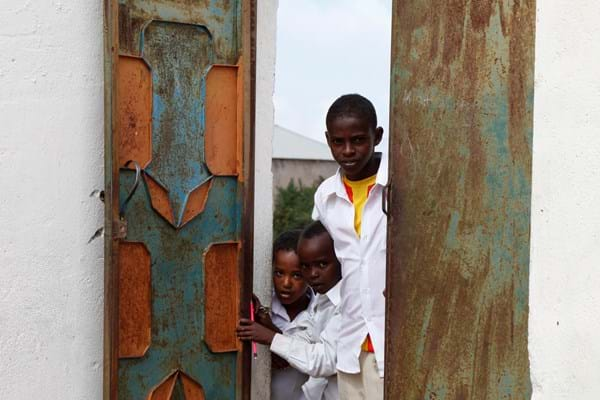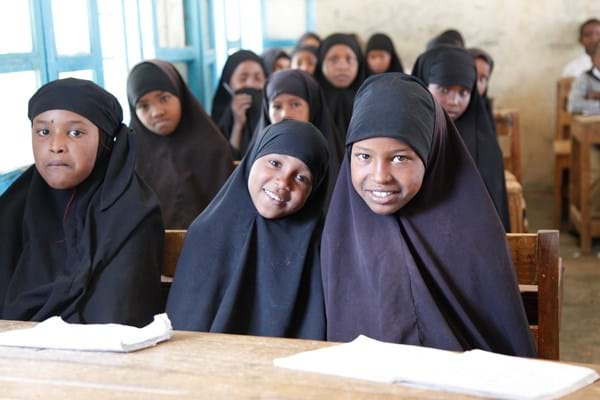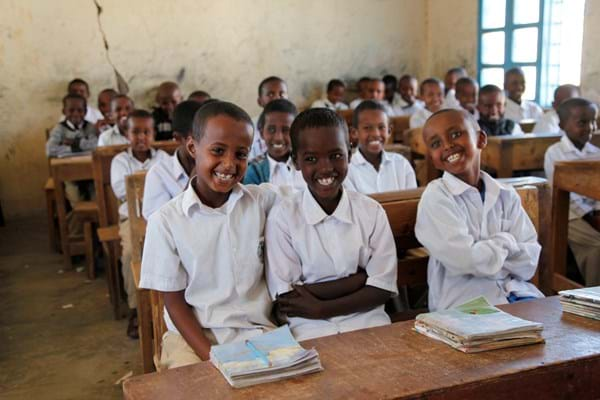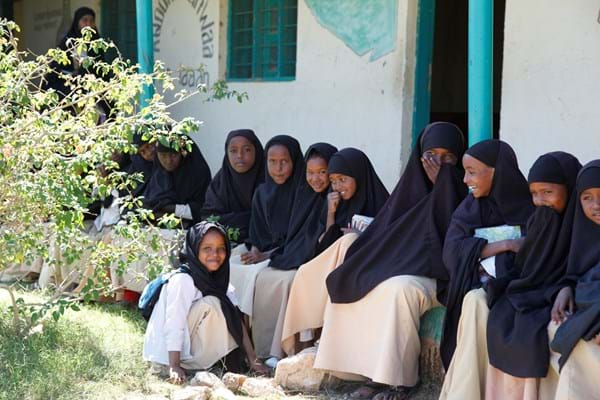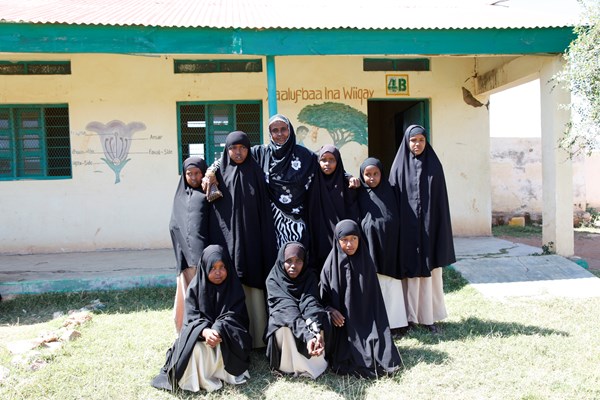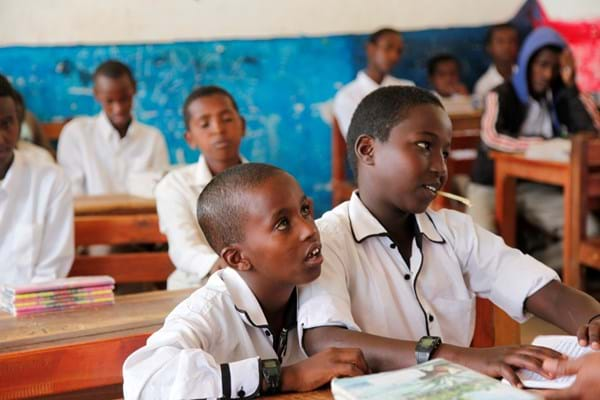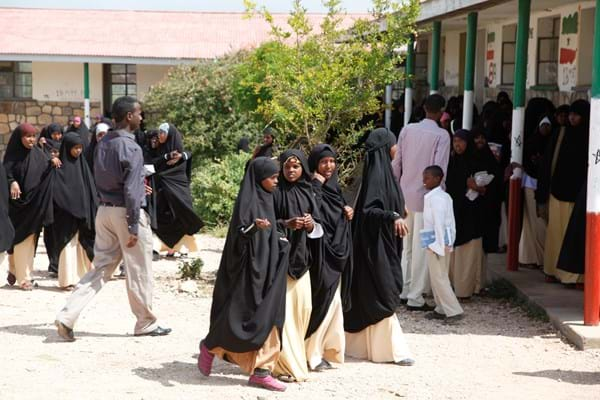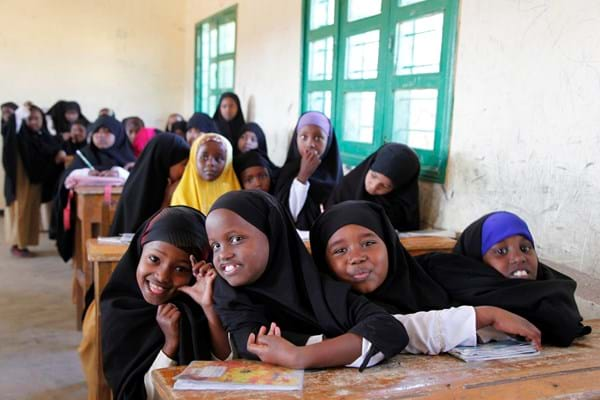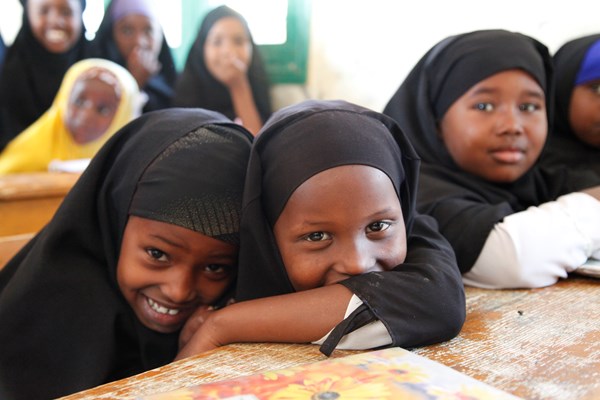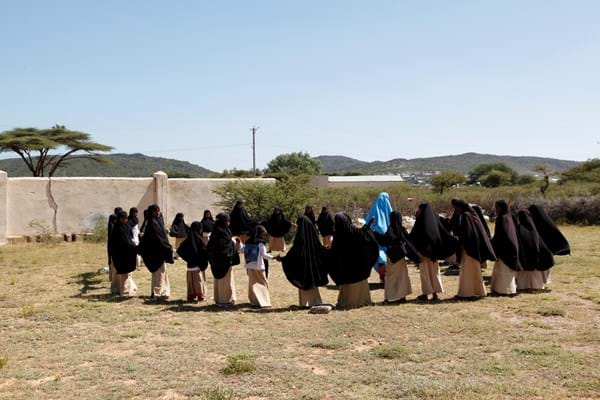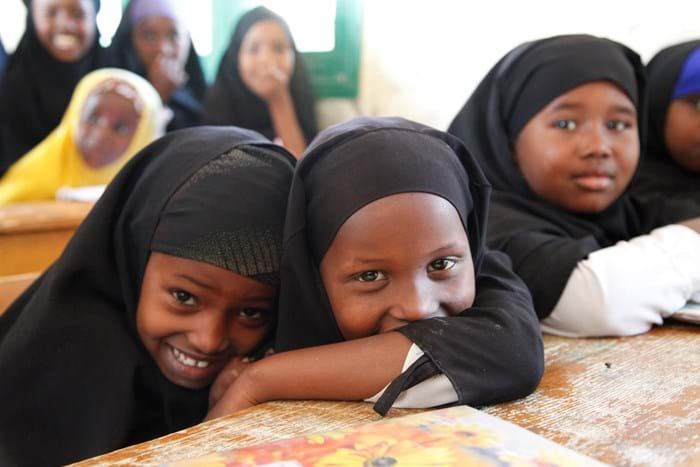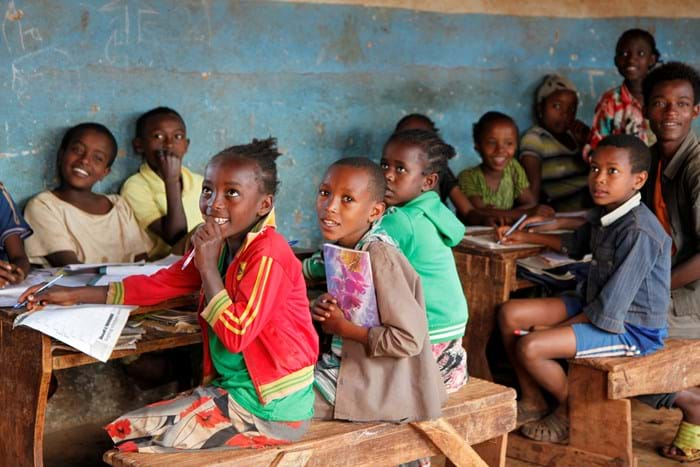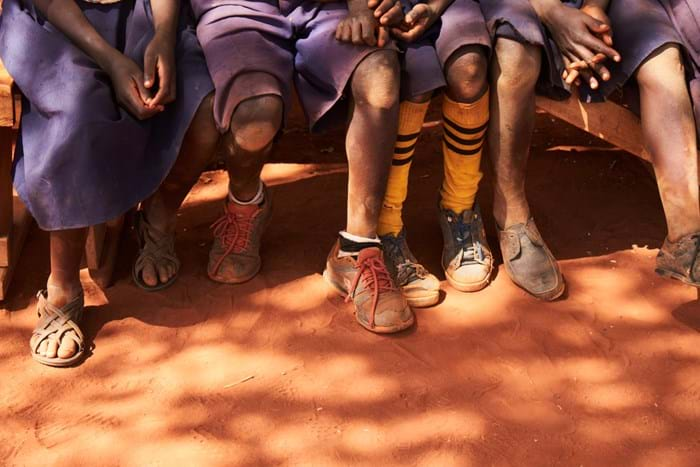- 0,000
school students from nine primary schools will get better access to high-quality primary school education.
- 000
families will become economically self-sufficient and able to provide direct essential services and care for their children.
Where
Sheikh, SomalilandFocus area
EducationDuration
2014-2021Economy
DKK 15,2 million (8,7 mio. + 6,5 mio.)
The situation in Somaliland
The World Bank estimates that the poverty rate in Somaliland is 29% in urban areas and 38% in rural areas and that the only about half of the 6-13 years old’s attend primary school (World Bank 2014). School enrolment is much lower in Somaliland than in other countries in the region (Worldbank 2014). Half of Somaliland’s population is under 18 years old and out of these, 11% have lost one or both parents, 22% are undernourished, 26% are involved in child labor, and 117 out of 1000 children die before their fifth birthday (Reliefweb)
The government of Somaliland has very limited resources and is completely dependent of support from nongovernmental organizations. Even though the government has declared primary education free for all pupils, school fees still present an obstacle to children’s primary school attendance.
Somali development and humanitarian indicators are also among the worst in the world. Youth unemployment is at 67%, one of the highest rates in the world, while overall unemployment is estimated at 54%. Life expectancy in Somalia/Somaliland is only 50 years, and more than 60% of youth have intentions to leave the country for better livelihood opportunities. Gender-based violence and discrimination against Somali women is widespread, and Somalia/Somaliland ranks as some of the worst countries in the world for women to live in (UNPD 2012)
Our approach
The overall objective is to provide girls and boys in Sheikh District with access to quality primary education. In addition to addressing hindrances in obtaining equal access to education, ensuring that more children are enrolled in school, and fewer drop out, the project also enables families to become economically self-sufficient and able to provide direct essential services and care for their children. At the community and district level the project will strengthen structures to advocate for the protection of child rights.
In addition to a more focused intervention on child rights, gender inequality, child protection and learning through mentorship the project has also incorporated teacher training, based on thorough gaps assessment and focus on planning, English language, positive discipline and pedagogical tools including class room management. Furthermore girl friendly toilets has been constructed, as this is an important factor for girls’ retention, especially the older girls who started having their periods and do not have access to sanitary towels. Construction of school playgrounds as well as sports facilities has been prioritized to heighten students’ motivation to go to school and because playing enhances learning ability as well as it empowers both girls and boys. Finally children’s right to participation and protection has been addressed by establishing or strengthening child rights groups (CRGs). The Child Rights Groups arranges activities in the community to raise awareness on issues together with their peers.
School life i Sheikh, Somaliland
